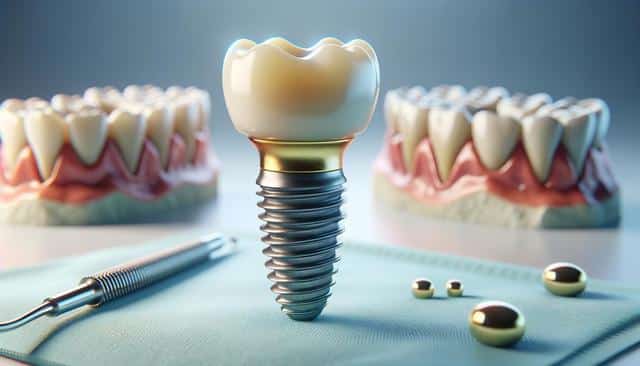
How Dental Trials Transform Implant Dentistry
The Evolution of Dental Implants
Dental implants have undergone significant transformation since their initial introduction into dentistry. From early experimental procedures to today’s sophisticated treatments, they now offer a predictable and durable alternative to dentures and bridges. The evolution has been guided largely by advancements in materials, surgical techniques, and digital imaging technology. Titanium remains a commonly used material due to its biocompatibility, but newer options are being explored to cater to patient-specific needs.
One of the pivotal shifts in implant dentistry is the integration of 3D imaging and computer-guided surgery. These technologies help dental professionals achieve more precise placement, reduce surgical risks, and improve patient outcomes. Additionally, new surface treatments on implants encourage faster osseointegration—the process by which the implant fuses with the jawbone—shortening recovery time and improving stability.
Modern implant systems also cater to various clinical scenarios through innovations such as mini implants, zygomatic implants, and immediate load implants. These solutions are particularly beneficial for patients with limited bone or those seeking quicker rehabilitation.
The Role of Dental Trials in Innovation
Clinical trials play a crucial role in the continual development of dental implants. These structured studies help evaluate the safety, effectiveness, and longevity of new materials, designs, and techniques. By collecting data from diverse patient groups, dental trials provide evidence-based insights that influence treatment protocols and product development.
In implant dentistry, trials often focus on:
- Evaluating the performance of new implant surfaces and coatings
- Assessing outcomes of immediate versus delayed loading
- Comparing different bone graft materials and techniques
- Testing new surgical guides and digital planning tools
Through these studies, dental professionals gain a better understanding of how implants behave under real-world conditions. This evidence supports more informed clinical decisions and ultimately benefits patients by ensuring that new products meet rigorous standards before widespread use.
Patient Safety and Quality Assurance
Dental implant trials are meticulously designed to prioritize patient safety and uphold ethical standards. Regulatory bodies and institutional review boards oversee the process, ensuring that all participants are fully informed and that risks are minimized. Safety monitoring continues throughout the duration of the study, with data being carefully recorded and analyzed.
These trials not only protect patients but also contribute to quality assurance in implant dentistry. Manufacturers use findings to refine their products, improve user instructions, and develop training programs for clinicians. This commitment to quality ensures that only well-tested and reliable implants reach dental practices.
Some key elements of quality assurance in dental implant trials include:
- Standardized protocols for data collection and analysis
- Long-term follow-up periods to assess durability
- Transparent reporting of complications and success rates
Such practices build trust among clinicians and patients alike, reinforcing confidence in the safety and effectiveness of new implant systems.
Advancements Driven by Research
Ongoing research through dental trials has led to several advancements that have reshaped implant treatment. For example, innovations in digital dentistry—such as intraoral scanners and CAD/CAM technology—have improved accuracy in creating implant-supported restorations. These tools reduce human error and streamline workflows, resulting in better-fitting prosthetics and enhanced patient comfort.
Another area of progress is in biomaterials. Researchers are exploring alternatives to titanium, such as zirconia, which may offer aesthetic and hypoallergenic benefits. Trials are essential for determining how these materials perform over time and in various patient populations.
Additionally, research has contributed to better understanding of peri-implant diseases and how to prevent them. Through controlled studies, clinicians have identified risk factors and effective maintenance protocols that help patients preserve their implants longer.
All these advancements have been made possible because of a strong foundation in scientific research and clinical validation. Without dental trials, such improvements would be based on anecdotal evidence rather than robust data.
Looking Ahead: The Future of Implant Dentistry
As dental technology continues to evolve, the role of trials will remain central to progress. Future studies are likely to explore the use of artificial intelligence in treatment planning, personalized implant designs tailored to individual anatomy, and even regenerative approaches that encourage natural tissue growth around implants.
In addition, with the growing emphasis on sustainability and minimally invasive techniques, researchers are developing solutions that aim to reduce surgical trauma and environmental impact. Trials will be indispensable in validating these emerging methods and ensuring they meet the high standards expected in dental care.
For patients, this means access to more personalized and effective options. For clinicians, it provides a reliable framework for evidence-based practice. The collaboration between researchers, manufacturers, and dental professionals continues to drive innovation and improve outcomes across the field.
Conclusion: Empowering Dental Progress Through Trials
Dental implants have become a widely accepted treatment for tooth loss, largely due to the rigorous research and testing that supports them. Dental trials are fundamental to this process, offering insights that guide innovation, enhance safety, and improve patient outcomes. As the demand for implant solutions grows, so too will the need for continued research and collaboration.
Whether you’re a dental professional looking to stay at the forefront of your field or a patient considering implants, understanding the role of clinical trials can help you make more informed decisions. By supporting evidence-based advancements, dental trials ensure that implant dentistry remains both progressive and patient-centered.


